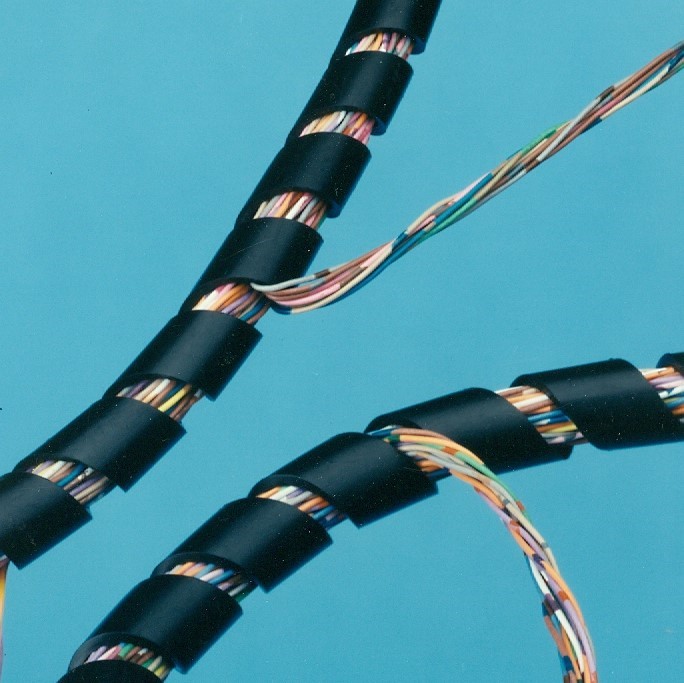
Made from polyamide resin, nylon is known to resist moisture, impacts, chemicals and abrasion while retaining its shape. While polyamide resins include natural plastics and adhesives, nylon is a synthetic polyamide used widely for industrial and commercial purposes. Used in the food processing, auto manufacturing and robotics industries, nylon tubing also features pneumatic systems, which use compressed air to power machinery automatically.
Types of Nylon Tubing
Nylon’s molecular structure makes it much more heat resistant than other plastics, with a melting point of 374°F (190°C). Its resistance to heat, along with its crystalline structure, additionally makes it useful when working with chemicals. Because of its hardiness, nylon is widely favored for industrial and commercial tubing. Nylon tubing types come in several variations:
Standard Nylon Tubing
The most common type is called nylon 6. It resists moisture, so is also more resistant to corrosion than other types of nylon tubing. Nylon 6 is made from a single monomer, a simple molecule that has two or more sites onto which other monomers can bind. Standard nylon is made up of six carbon atoms, which is why it’s referred to as nylon 6.
Nylon 66 vs Nylon 6 Tubing
Along with nylon 6 – the most common type of nylon used – is nylon 66. Both are similar, though due to variances in chemical structure they each have distinctive qualities. While nylon 6 is made from one monomer with 6 carbon atoms, nylon 66 is made from 2 monomers.
Both share the following qualities:
- Easily machined
- Easy to slide
- Electrically insulating
- High mechanical strength
- Resistant to fatigue
- Resistant to gamma rays and x-rays
- Resistant to vibrations
- Resistant to wear from corrosion and heat
There are significant differences between the two polymers. Nylon 6 better withstands stress and impact, shrinks less in the mold and allows easier coloration. With a more crystalline structure, nylon 66 resists acids and chemicals better, along with absorbing less water. Additionally, nylon 66 is more heat resistant.
Nylon 6 is commonly used in the military as well as for industrial uses, and can be found in:
- Automotive engine compartments
- Firearm components
- Gears
As a high-performing plastic, nylon 66 should be used when tubing is exposed to higher temperatures, such as with:
- Friction bearings
- Radiator caps
- Tire ropes
DOT Nylon Tubing
This type of nylon tubing requires compliance with the Department of Transportation, thus its name. An engineered polyester blend, this type of tubing remains more flexible for longer than standard nylon tubing, so is used in brake lines for vehicles. It can take oily, hot and cold conditions, with a temperature range from -85°F (-65°C) to +200°F (93°C). DOT tubing is flexible, lightweight, fatigue resistant and dimensionally stable, additionally offering abrasion and vibration resistance.
High-Pressure Nylon Tubing
Designed for a wide array of uses, high-pressure nylon tubing. It can handle natural solvents, alkali solutions, hydraulic fluids, oils and even diluted acids. It’s strong, stiff and resistant to abrasion, especially in environments with high heat, pressure or vibration. This type of nylon tubing also exhibits higher tensile strength and is used in the chemical, automobile and transport industries, particularly for industrial applications. Commonly, this nylon tubing is used for:
- Air
- Brake lines
- Grease
- High-pressure gas lines
- Hydraulic hoses
- Robotics
- Vacuums
Flexible (Super Soft) Nylon Tubing
Made from nylon 11 resin, which includes a special compound that increases flexibility significantly, flexible nylon tubing is also referred to as “super soft”. It has numerous properties that help keep it dimensionally stable and allows it to resist abrasions, chemicals, moisture, impact and heat. Nylon 11 is made using castor beans, and this type of nylon tubing is ideal for environments where polyurethane is impractical, such as:
- Coolant and refrigeration lines
- Fuel lines
- Gas detection
- Lubrication lines
- Pneumatic equipment
- Robotics
- Suspension lines
Nylon Coils
These spirals of nylon tubing are coiled in expandable lengths, making them more flexible, and are often used to move compressed liquid or air over short distances. Nylon coils retract and extend by themselves, so provide an economical and lightweight solution for supplying air to pneumatic tools. Its nylon tubing will not easily scratch paint, so makes it ideal for use with articulated brake coils in semi-trucks. This type of nylon tubing is also used to assist in the feeding and watering of livestock.
Nylon Mini Coils
Much like larger nylon tubing coils, mini-coils offer greater flexibility and, with pigtails at each end, connect easily with other mechanisms. Mini-coils handle high pressure well, so are particularly useful in areas where space is limited. Nylon tubing mini-coils resist abrasion, working in pressurized environments as high as 298 pounds per square inch (PSI). Nylon coiled tubing additionally benefits from having coil memory. Mini-coils are ideal for use in:
- Control circuits
- Functions that involve motion
- Robotics
- Smaller pneumatic tools
- Various instruments
M.M. Newman Corporations’ standard Nylon Heli-Tube spiral wrap is Nylon 6. M.M. Newman Corporation also stocks Nylon 66 Heli-Tube spiral wrap in case a customer requires this material. Please call our wonderful sales team for pricing and more information on Nylon 66 if you require this material for a specific job. It is a bit more expensive so we recommend Nylon 6 unless you require Nylon 66.

